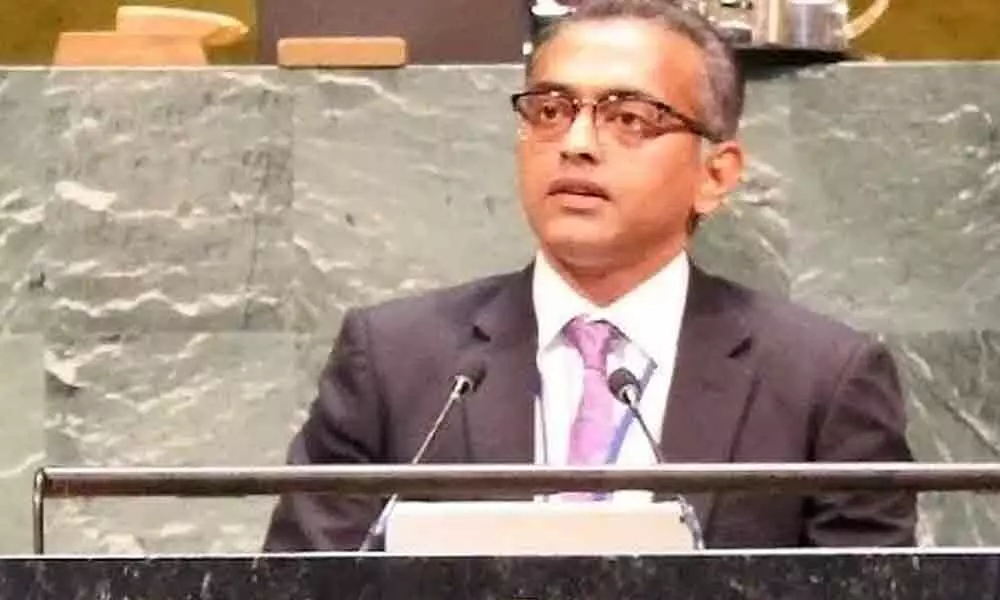India with G-4 serves ultimatum on UN Security Council reforms

India with G-4 serves ultimatum on UN Security Council reforms
India, along with Brazil, Germany and Japan, has served an ultimatum that the supporters of Security Council reforms will be forced to look for other ways to move the process forward if the UN's Intergovernmental Negotiations (IGN) for reform continues to be "held hostage" by those opposing change
United Nations : India, along with Brazil, Germany and Japan, has served an ultimatum that the supporters of Security Council reforms will be forced to look for other ways to move the process forward if the UN's Intergovernmental Negotiations (IGN) for reform continues to be "held hostage" by those opposing change.
As the General Assembly rolled over on Monday the deadlocked IGN process to the next session that starts later this month, India's Deputy Permanent Representative Nagaraj Naidu issued the warning in a letter to Assembly President Tijjani Muhammad-Bande written on behalf of the G-4, the group of four countries that mutually support each other for a permanent seat on a reformed Council.
He wrote, "There is a need to ensure that the IGN process is not held hostage, procedurally and substantially, by those who do not wish to bring about reform in the Security Council."
"If this happens, and there are indications that this is already happening, those who demand reforms will be forced to look for other ways to finally make progress, including potentially outside the IGN process," he added.
The letter did not identify the countries hiding behind the "smokescreen" of procedures in the IGN to hold the process hostage.
They are a group of 12 countries that call themselves Uniting for Consensus (UfC) led by Italy and includes Pakistan. The group's agenda is prevent adding permanent members to the Council.
For more than a decade the group has blocked the adoption of a negotiating text on which to base the discussions by insisting that there should be a consensus on reforms before the text can be adopted. Consequently, the IGN process has not been able to hold meaningful negotiations.
"In the last decade or more of IGN meetings (since 2009), there has been practically no progress," Nagaraj wrote, because of the contention that "rules of procedure, allegedly, should not apply, due to the supposed 'informal nature' of the discussion."
"There has been no effort to capture the discussions in a single consolidated text for negotiations, which should be the essential task for any facilitator of any UN negotiations," he added.
The formal decision to rollover the negotiations was adopted on Monday using the silence procedure of voting under which resolutions and decisions are declared approved by the Assembly if no one voices an opposition within a timeframe after the Assembly president's announcement.
The procedure is being followed because the COVID-19 pandemic has stopped in-person Assembly meetings where voting can be held in the traditional manner.
The letter on behalf of the G-4 and a separate one written along the same lines by India were not to be construed as "breaking the silence," which would be a vote against the decision.
One of the avenues for bypassing the IGN is initiating the process to amend the UN Charter under its Article 108, which requires a two-thirds majority of UN members including all the permanent Council members.
While it may be possible to muster a two-thirds majority, the hurdle would be getting all the permanent members to agree.
The US, Britain and France support India's permanent membership while Russia is lukewarm in its backing and China is against it.
The US is likely to oppose possible African nations for permanent membership.














